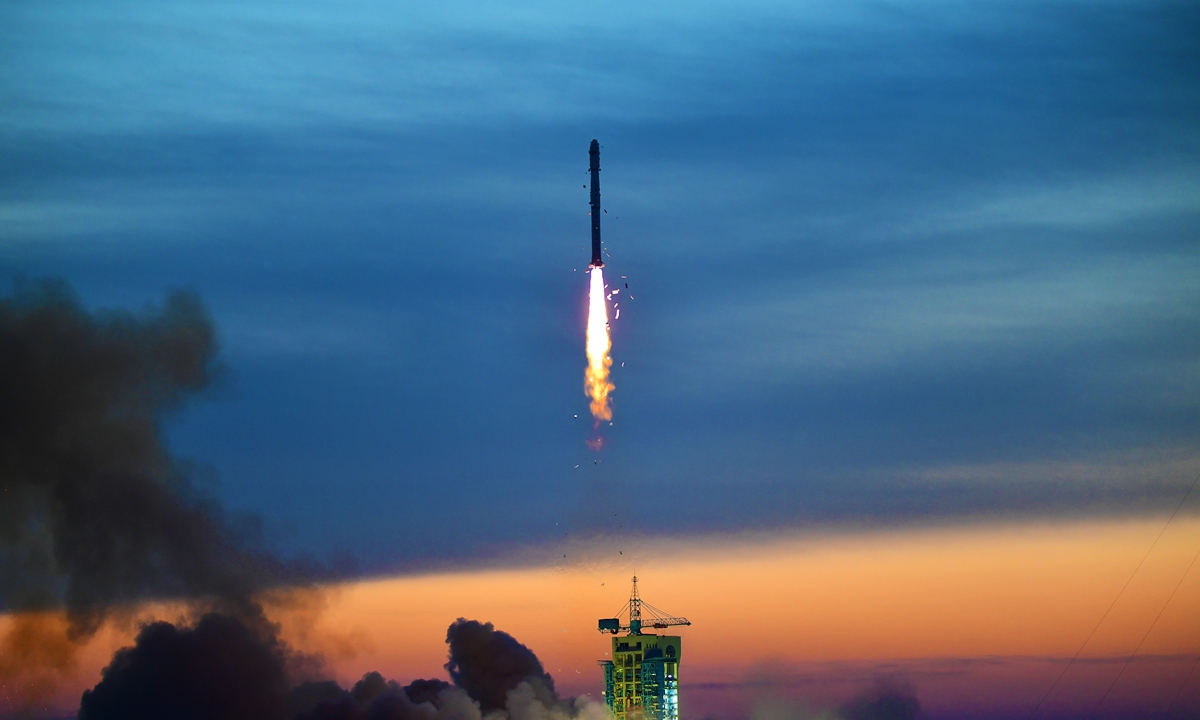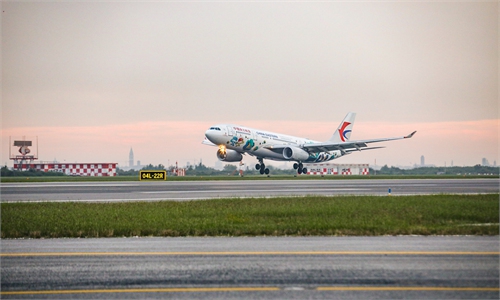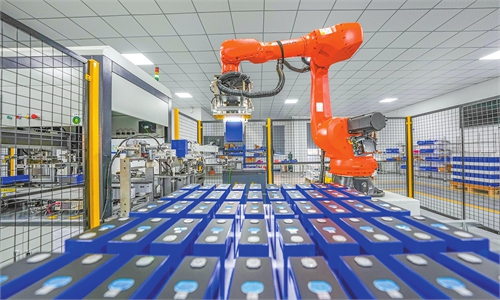Commercial space dual inclusion in Govt Work Report ramps up satellite internet construction

A Long March-4B rocket carrying the Shijian-6 05 satellites blasts off from the Jiuquan Satellite Launch Center in Northwest China, on Dec 10, 2021. Photo: Xinhua
China's 2025 Government Work Report has underlined the need to promote the safe and sound development of commercial space, the low-altitude economy, and other emerging industries. This was the second mention of commercial space in the Government Work Report, according to media reports, and industry insiders project more satellite internet technology will be deployed this year, steadily fueling the industry's expansion.
The Government Work Report has again mentioned commercial space, and designated it as a key development direction for strategic emerging industries, which demonstrates the pivotal role of commercial space in building China's modern industrial system, Zhang Changwu, founder and CEO of Beijing-based commercial space firm LandSpace, told the Global Times on Thursday in a statement.
Zhang Changwu said under the combined impetus of policy support, capital inflows and the launch of major projects, the development of the domestic satellite internet sector will accelerate in 2025, with the industry's market size projected to experience growth while downstream satellite application sectors are poised to enter a new phase of development.
During the annual two sessions, Rong Yi, a member of the National Committee of the Chinese People's Political Consultative Conference (CPPCC), the country's top political advisory body, and a rocket expert at China Aerospace Science and Technology Corp, said that China will see multiple types of reusable rockets make their debuts in 2025, with maiden flights slated for implementation across the year, China Media Group reported on Thursday.
Reusable rocket technology, as a key technology in the commercial space sector, enables significant reductions in launch costs while enhancing operational efficiency, and Zhang Changwu projected that the technology might be achieved this year.
LandSpace is accelerating the development of its first-stage reusable heavy carrier vehicle, ZQ-3, with its maiden flight scheduled for 2025, according to Zhang Changwu. The project aims to achieve first-stage booster recovery through three sequential missions, and it targets the normalization of operational services for ZQ-3's reusable first stage by 2026, he noted.
However, Zhang Changwu pointed out that the internationalization of China's satellite industrial chain faces challenges in the competition for satellite frequencies and orbit resources, where China needs to accelerate deployment to counter the constraints of international rules.
Developing new quality productive forces in light of local conditions and accelerating the development of a modernized industrial system are listed as one of the major tasks for 2025 for the government, read the report.
As a major engine for China to develop the new quality productive forces, the commercial space industry is facing unprecedented opportunities, with more disruptive technologies and technological innovations set to continuously emerge, Zhang Shijie, chief scientist from another commercial space firm Galaxy Space, told the Global Times, noting that building aerospace infrastructure such as satellite internet is becoming an inevitable option for innovating new technologies and industries.
In 2024, China conducted 68 rocket launch missions, 12 of which were carried out by commercial space companies, the Securities Times reported on Wednesday. The 2025 Government Work Report also stated that last year, China achieved rapid growth in emerging industries, including commercial space.
"It is foreseeable that with the further release of policies and continuous technological advancements, the integration of satellite applications with artificial intelligence and digital technologies will expand their application scenarios into new dimensions," said Zhang Shijie.



